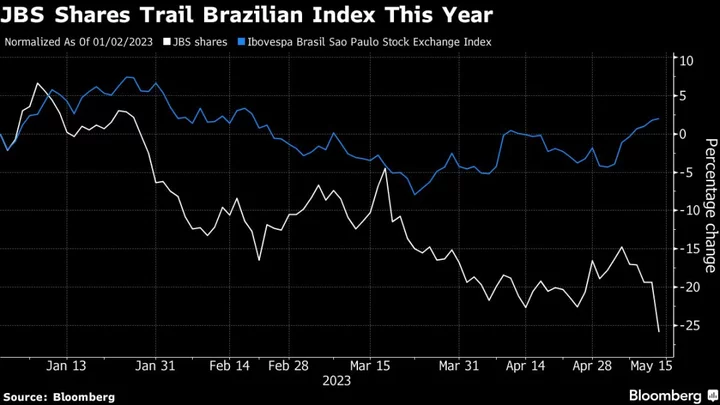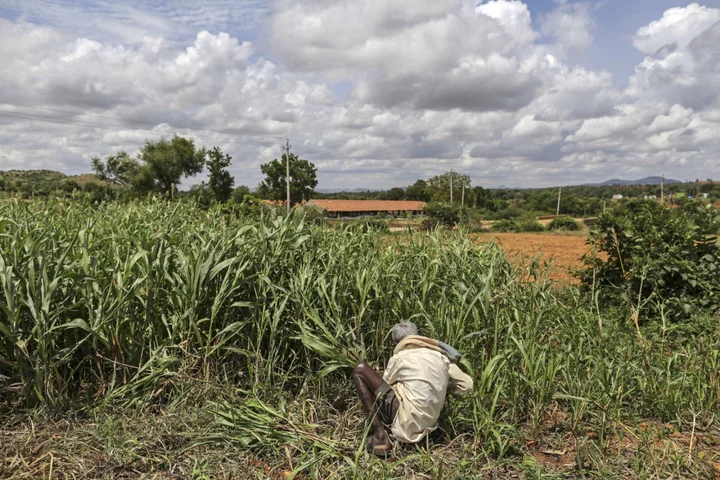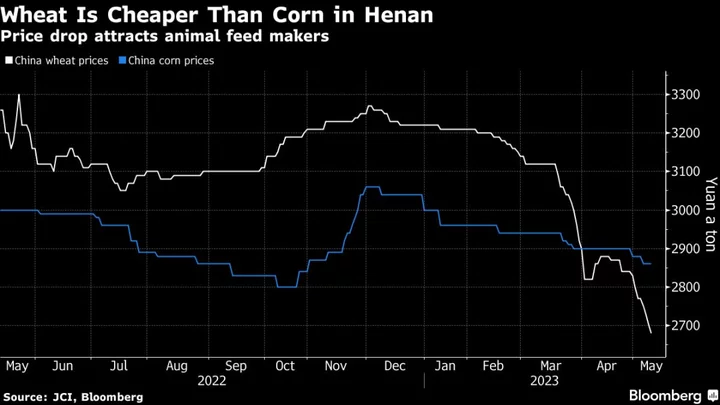JBS SA, the world’s largest meat producer, plunged the most in three years as an unexpected loss in the first quarter showed that its strategy of producing different proteins in several geographies doesn’t make it immune to risk.
“This is the first time in 12 years we face adverse conditions in all the countries we operate,” Chief Executive Officer Gilberto Tomazoni said during an earnings call. That means JBS earnings have showed stability in the long term, supporting the company’s diversification strategy, he said.
The shares fell as much as 13% in Sao Paulo, marking both the biggest intraday decline and the lowest intraday price since March 2020.
Earnings before items came in below analysts estimates in all of JBS’s operations, from US beef to Brazil chicken and as far away as Australia. The underperformance had different causes for each business, which reinforces the benefits of the diversification model, Wesley Batista Filho, head of the US operations, told investors on Friday.
Read More: JBS Has Surprise Loss as Internal Snags Add to Weak Meat Market
Meat producers have been squeezed by record-high cattle costs in the US and elevated animal-feed prices at a time when inflation has curbed demand and prompted a trade down to cheaper foods. That’s a shift from recent years, when meatpackers enjoyed record profits. This week, Tyson Foods Inc. shares also plunged after the company cut its full-year sales forecast, and Cargill Inc. is struggling with its protein business.
Simultaneous headwinds across protein categories don’t happen often, so the first quarter may be as bad as it gets, JBS executives said. Performances have been improving in all businesses, and the recovery should be faster in its Brazilian beef and chicken units and in Australia. Improvements will take longer in the US, Batista said.
While demand may rise in the coming months as barbecue season starts up, cattle costs will remain high, curbing profits. Margins in the US beef business are likely to continue below historical levels in 2023 and part of next year, he said.
“As long as JBS continues to face this perfect storm, with a negative protein downcycle in every single business unit, we believe investors will ignore the cheap valuation and remain on the sidelines, waiting for a better entry point,” Itau BBA analyst Gustavo Troyano said in a report.









